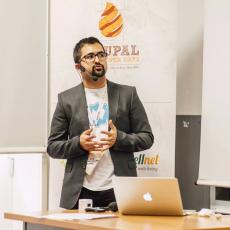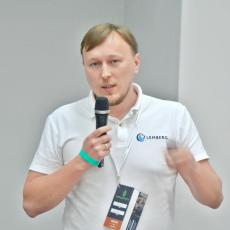Enjoy our programme! Please observe our code of conduct throughout the whole event.
Thursday
| Brainsum | Drupalaton | Sprint room | |
|---|---|---|---|
| 10:00 - 10:30 | Opening words | Sprint | |
| 10:30 - 12:00 | Pieter Frenssen: Working with REST APIs | Floris Van Geel: Spatial Drupal | Sprint |
| 12:00 - 13:30 | Lunch (90 minutes) | Sprint | |
| 13:30 - 15:00 | Ruben Teijeiro: Headless Drupal 8 Hands-on Workshop | Tamás Hajas: Adventures with Twig | Sprint |
| 15:00 - 15:45 | Tamer Zoubi: History of Drupal (aka from Drop 1.0 to Drupal 8.0) | Sprint | |
| 15:45 - 16:30 | Lucian Hangea: Build and ship Drupal websites with Docker | Sprint (room until 20:00) | |
Friday
| Brainsum | Drupalaton | Sprint room | |
|---|---|---|---|
| 8:00 - 9:00 | Good morning runners! | ||
| 10:30 - 12:00 | Théodore Biadala: Progressive web apps | Péter Pónya, Tamás Szanyi, Rubén Teijeiro: Drupal 8 Media | Sprint |
| 12:00 - 13:30 | Lunch (90 min) | Sprint | |
| 13:30 - 15:00 | Sebastian Siemssen: Decoupling Drupal with GraphQL & Relay | Bojan Zivanovic: Creating online stores with Commerce 2.x on Drupal 8 | Sprint |
| 15:00 - 16:30 | Fabian Bircher: Configuration Management: theory and practice | Sprint (room until 20:00) | |
| 18:45 - 21:00 | CRUISE PARTY! | ||
Saturday
| Brainsum | Drupalaton | Sprint room | |
|---|---|---|---|
| 8:00 - 9:00 | Good morning runners! | ||
| 11:00 - 12:00 | Károly Négyesi: Migrate, past, present and future | Roman Paska: People management | Sprint |
| 12:00 - 12:10 | Group photo! | ||
| 12:10 - 13:30 | Lunch (80 min) | Sprint | |
| 13:30 - 15:00 | Christian López Espínola: Drupal 8 Multilingual Hands-on Site Building | Bart Feenstra: Defensive Programming | Sprint |
| 15:00 - 16:30 | Czövek András: Caching in Drupal 8 | Sprint (room until 20:00) | |
| 19:00 | SURPRISE PARTY! | ||
Sunday
| Brainsum | Drupalaton | Sprint room | |
|---|---|---|---|
| 10:00 - 20:00 | No workshops | No workshops | Sprint |
Sprinters may continue working after 20:00 on all days in the hotel's atrium.





















Share drupalaton on or on
or on
